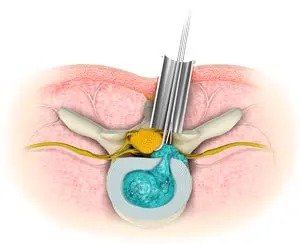Minimally Invasive Spine Surgery

Introduction:
Minimally Invasive Spine Surgery: A Revolution in Spinal Care
Minimally Invasive Spine Surgery (MISS) represents a significant advancement in the field of spinal surgery, offering numerous benefits over traditional open procedures. This surgical approach, characterized by smaller incisions, reduced muscle damage, and enhanced visualization, has become increasingly popular for treating a wide range of spinal conditions. Let’s delve into the details of MISS, including its types and the conditions it can effectively address.
Types of Minimally Invasive Spine Surgery:
- Microdiscectomy: This procedure is commonly used to treat herniated or bulging discs, which can compress spinal nerves, leading to pain and neurological symptoms. During a microdiscectomy, a surgeon makes a small incision and uses specialized instruments and a microscope to carefully remove the problematic portion of the disc, relieving pressure on the nerves.
- Laminectomy: Laminectomy is performed to alleviate spinal stenosis, a condition where the spinal canal narrows, causing pressure on the spinal cord and nerves. In a minimally invasive laminectomy, the surgeon removes a portion of the lamina (the bony arch of the vertebra) through a small incision, creating more space for the spinal cord and nerves.
- Spinal Fusion: Minimally invasive spinal fusion is employed to treat conditions such as degenerative disc disease, spondylolisthesis, and spinal instability. In this procedure, the surgeon uses small incisions to access the spine, inserts bone graft material or artificial spacers between vertebrae, and often utilizes screws, rods, or plates to stabilize the spine. Fusion encourages the growth of new bone, restoring stability to the affected area.
Conditions Treated with MISS:
- Herniated Discs: Minimally invasive techniques allow for the removal of herniated disc material that is compressing spinal nerves, providing relief from pain and sciatica.
- Spinal Stenosis: MISS can effectively address the narrowing of the spinal canal, relieving pressure on the spinal cord and nerves and reducing pain and numbness.
- Degenerative Disc Disease: Minimally invasive spinal fusion and disc replacement procedures can alleviate pain and restore mobility in patients with degenerated discs.
- Spondylolisthesis: MISS can stabilize the spine and correct the misalignment seen in spondylolisthesis, a condition where one vertebra slips over another.
- Spinal Tumors: In select cases, MISS can be used to remove spinal tumors, minimizing damage to healthy surrounding tissue.
The key benefits of MISS include:
- Smaller Incisions: One of the most significant advantages of MISS is the use of tiny incisions, typically less than an inch in length. This results in minimal damage to surrounding tissues and muscles, reducing pain and the risk of complications.
- Faster Recovery: Patients undergoing MISS often experience shorter hospital stays and quicker recovery times compared to open surgery. This means less postoperative pain and a faster return to daily activities.
- Reduced Blood Loss: Smaller incisions mean less blood loss during surgery, minimizing the need for blood transfusions and reducing the risk of complications associated with significant blood loss.
- Lower Infection Rates: Smaller incisions also reduce the risk of infection, as there is less exposed tissue and a smaller wound to care for postoperatively.
- Minimal Scarring: With MISS, scarring is minimal due to the small incisions. This cosmetic benefit is particularly appealing to patients concerned about visible scars.
- Improved Accuracy: Surgeons can rely on advanced imaging techniques such as fluoroscopy and intraoperative navigation to ensure precise placement of instrumentation and implants, enhancing the overall success of the procedure.
In conclusion, Minimally Invasive Spine Surgery has revolutionized spinal care by offering patients a safer, less painful, and faster road to recovery. With smaller incisions, reduced blood loss, and improved accuracy, MISS has become a preferred option for many individuals seeking relief from debilitating spinal conditions. If you’re experiencing back or neck pain, consult with a spine specialist to explore whether MISS is a suitable treatment option for your condition, potentially leading to a quicker recovery and improved quality of life.

